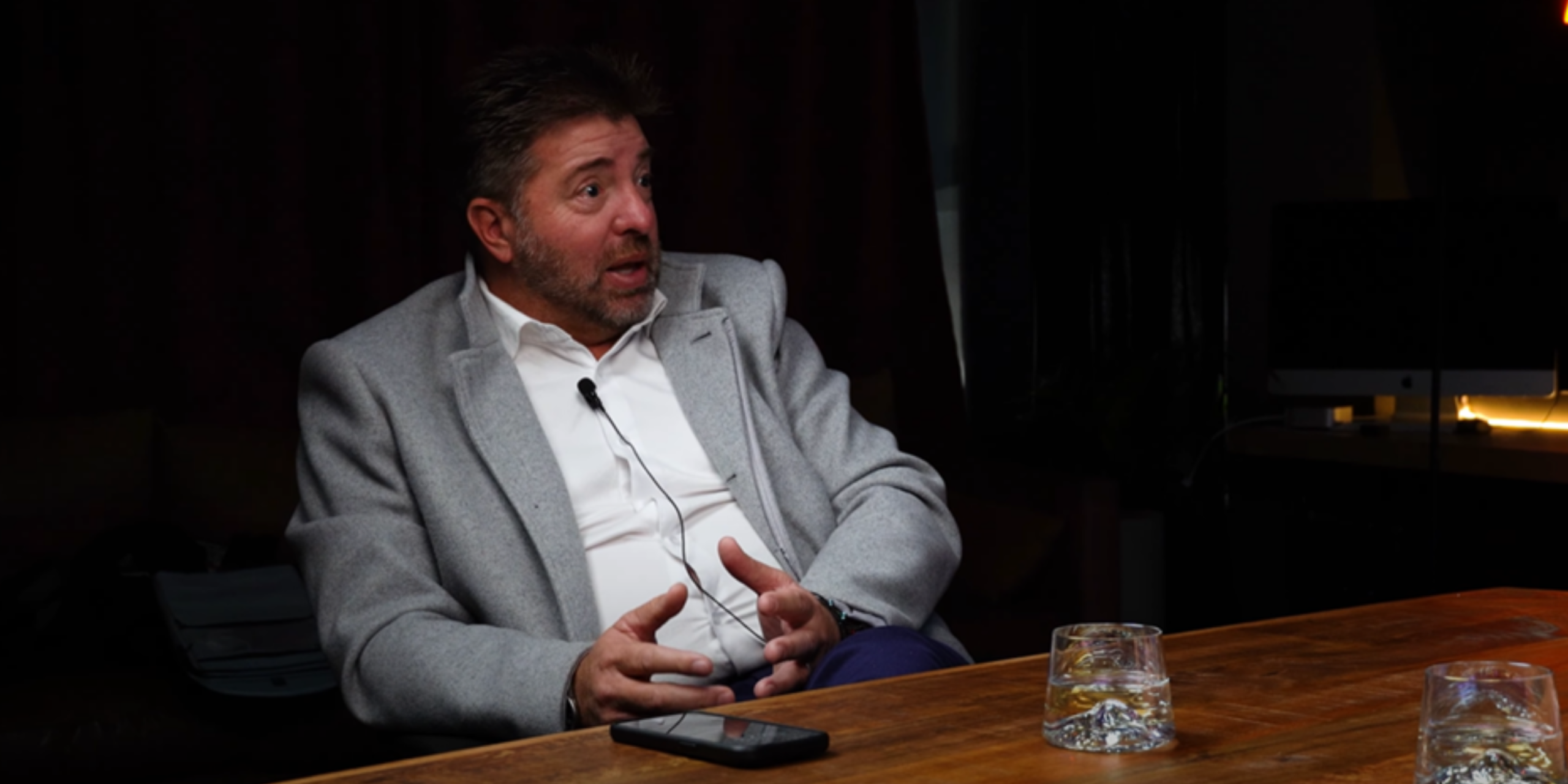Future-Proofing Dentistry: Lessons from Marc Perotti’s 30 Years in the Game

What separates the dental practices thriving in today’s volatile economy from those barely staying afloat?
It is not just clinical skill. It is leadership, adaptability, and the ability to evolve your systems before circumstances force your hand.
Marc Perotti, Managing Director of Wright Dental Supplies, leads one of the biggest operations in South African dentistry. We are talking about a three thousand square meter warehouse, one hundred and fifty staff, four thousand dentists on the books, and six to seven hundred deliveries going out every single day.
In our Smile Club Podcast conversation, Marc unpacked exactly how to keep a business that size moving forward and how the same principles can help even a small, one-room practice.
Resilience starts at the top
When COVID hit, Marc’s priority was not just stock and cash flow. It was keeping people employed and relationships intact.
“Nobody knew how long it would last, or what the impact would be. My responsibility was to keep our people employed, keep the business alive, and make sure we could still deliver for our clients.”
The survival plan included:
- Leveraging their UK parent company for shared strategy
- Streamlining decision-making with dashboards tracking sales, cash flow, and margins daily
- Accelerating tech adoption that might have taken years otherwise
Takeaway: In a crisis, speed of decision-making beats perfection. Build your numbers dashboard now, so you are ready before the next disruption hits.
Big doesn’t mean slow
Wright is a large operation, but Marc has made agility a priority.
They centralised warehousing in Cape Town, outsourced logistics for speed, and automated repetitive tasks so staff could focus on higher-value work. When a surgical order needs to arrive by eight thirty the next morning, “good enough” is not good enough.
They even switched logistics partners after eight years to get more personalised service. A tough call, but one that improved customer experience.
Takeaway: Agility is a choice. Even big operations can pivot if the culture allows it — small practices have no excuse.
Local manufacturing builds long-term strength
Marc relocated Wright’s denture acrylic teeth manufacturing from Hungary to Cape Town. It created sixty-five new local jobs, kept money in the economy, and gave them tighter control over quality.
“We only use ten percent of what we make here. The rest is exported to the UK and distributed worldwide.”
Takeaway: Sometimes the harder, more expensive route creates resilience you cannot buy later.
Tech isn’t optional for Future-Proofing Dentistry
From the “My Wright Place” ordering system to real-time logistics tracking, Marc sees the same trend: the dentists embracing digital tools are the ones growing fastest.
“All it takes is one or two hours of your time. Once they see the lightbulb moment, engagement is phenomenal.”
The resistance often comes from the fear that tech will be complicated or disruptive. The reality is that the right systems give you more time for patients, marketing, and higher-value work.
Takeaway: Set aside two hours this month to learn one new system. That short investment can save you hundreds of hours a year.
Compete for the wallet, not just the patient
Most dentists think their competition is the practice down the street. Elton Lau sees it differently.
“You’re competing for a share of your patient’s wallet. That means you’re up against handbags, botox, and holidays – not just other dentists.”
Marc Perotti says “The practices winning today treat dentistry as an experience worth paying for, not just a procedure. They have defined their niche, manage costs precisely, and deliver a patient journey that feels premium.”
Takeaway: Define your competitive advantage beyond dentistry. Why should someone choose to spend on you instead of anything else they value?
Compliance is part of the brand
Cheap products can cost more in the long run. Wright only buys from manufacturers meeting SAHPRA, ISO, and international compliance standards.
This is not just about ticking boxes. It is about protecting patient outcomes and the dentist’s reputation.
Takeaway: Patients cannot see the compliance certificates on your materials, but they can see the results. Protect both.
Education is shifting
Hands-on workshops are delivering more value than big congresses. Marc has seen it in the numbers and in the adoption rates.
A single day of practical learning can be implemented on Monday morning. Congresses are expensive, time-heavy, and too short on deep engagement.
Takeaway: Invest in training that changes Monday, not just your notes folder.
The DSO wave is coming
Dental Service Organisations are already reshaping the US and UK. They buy practices, centralise operations, and let dentists focus on patients while business experts run the back end.
Marc believes it is only a matter of time before DSOs become a major force in South Africa — and they will only buy well-run, systemised, profitable practices.
Takeaway: Whether you want to sell or not, run your practice as if a buyer might walk in tomorrow.
Conclusion – The rule that wins in any size practice
You cannot be everything to everyone. But you can be the best at what you choose.
Marc’s three-decade view of dentistry boils down to this:
- Adapt early
- Specialise
- Keep refining your systems
Because in the end, the practices that survive are the ones that evolve before they have to.
What is one outdated system or mindset you could change this month that would make your practice more valuable?
🎧 Listen to the full conversation with Marc Perotti on the Smile Club Podcast – YouTube
If you are looking to sharpen your skills and earn 8 CPD ethics points at the same time, take a look at the Meta You Course for Healthcare — it is the same approach I use to run Smile Club and host these conversations. ~ Elton Lau